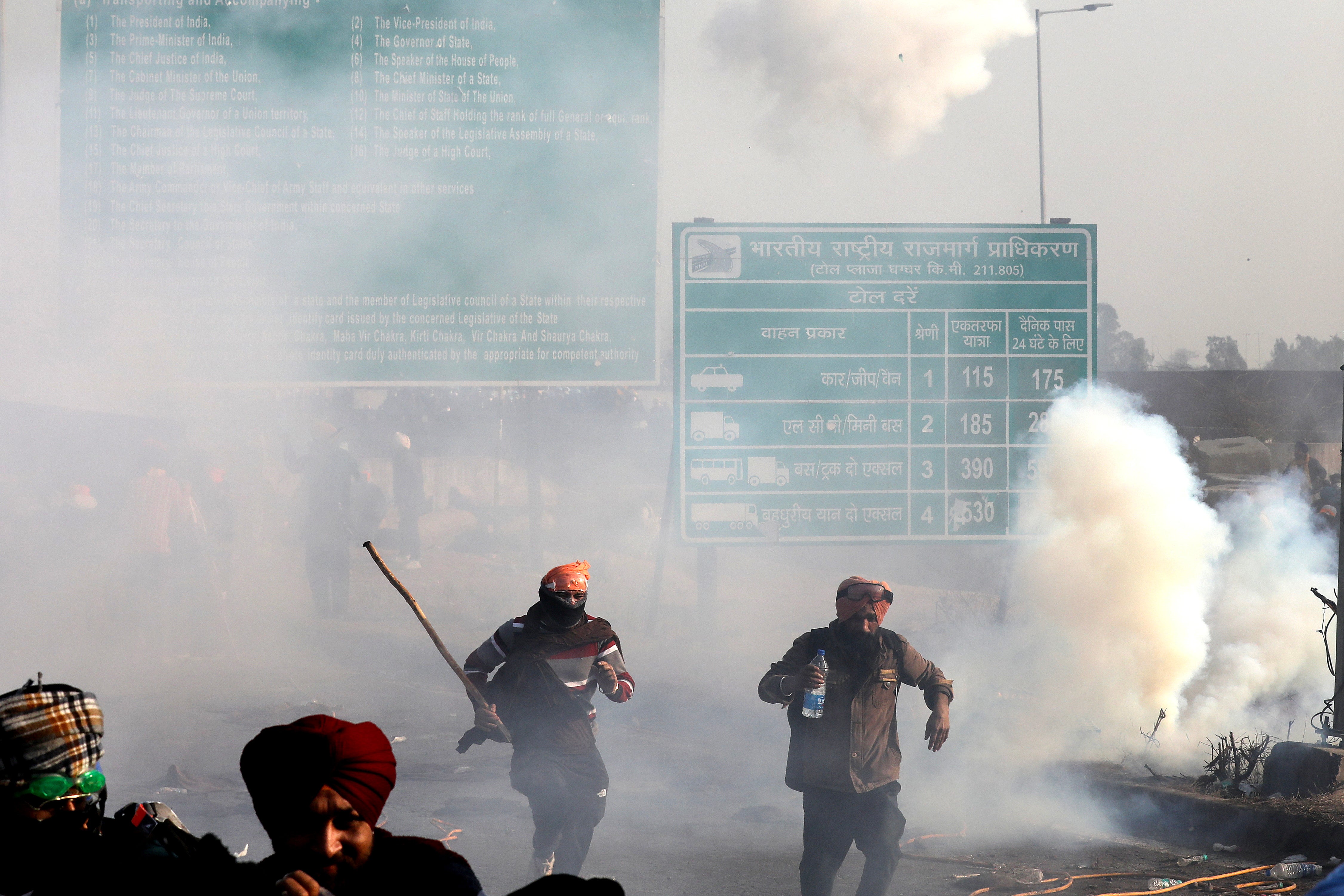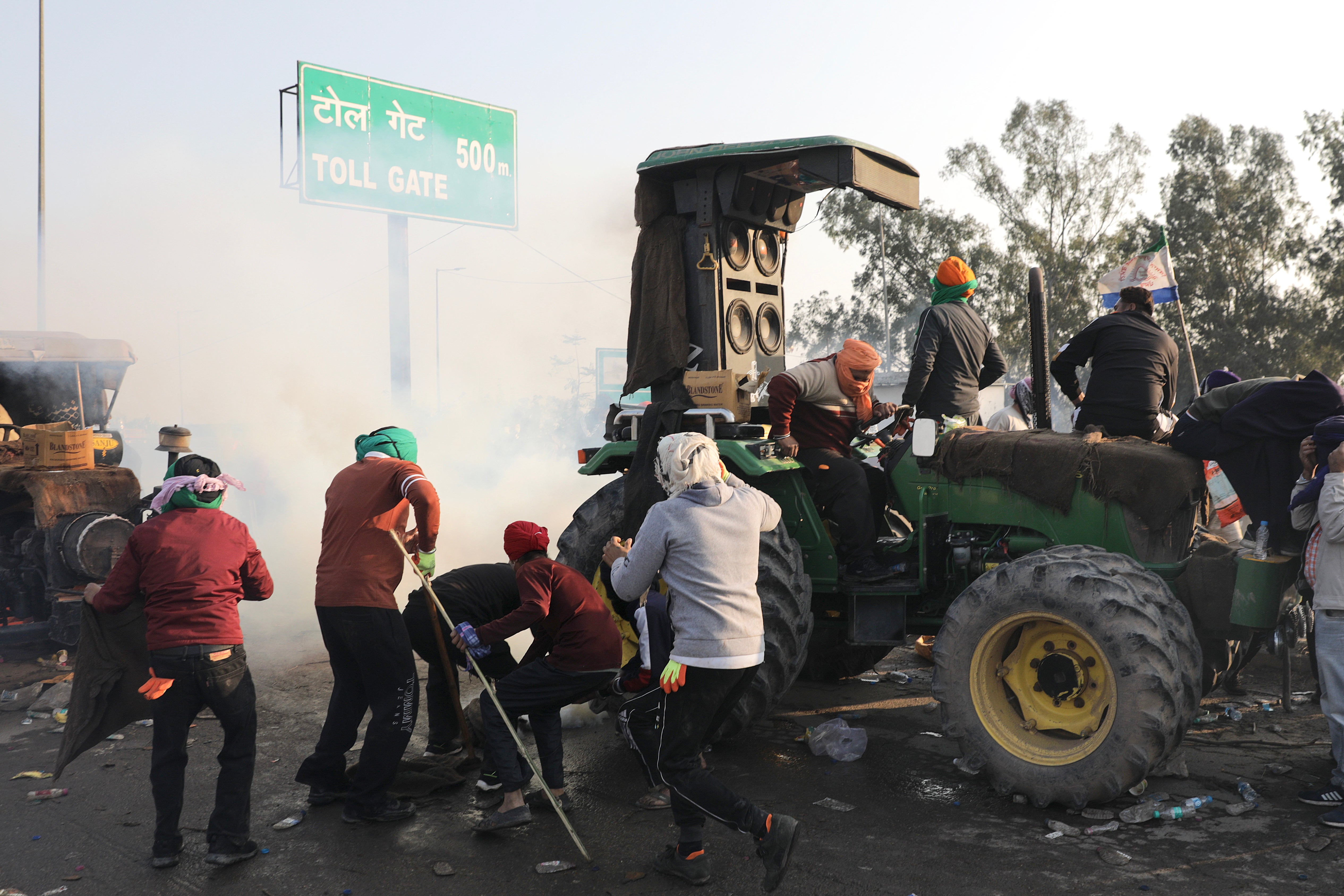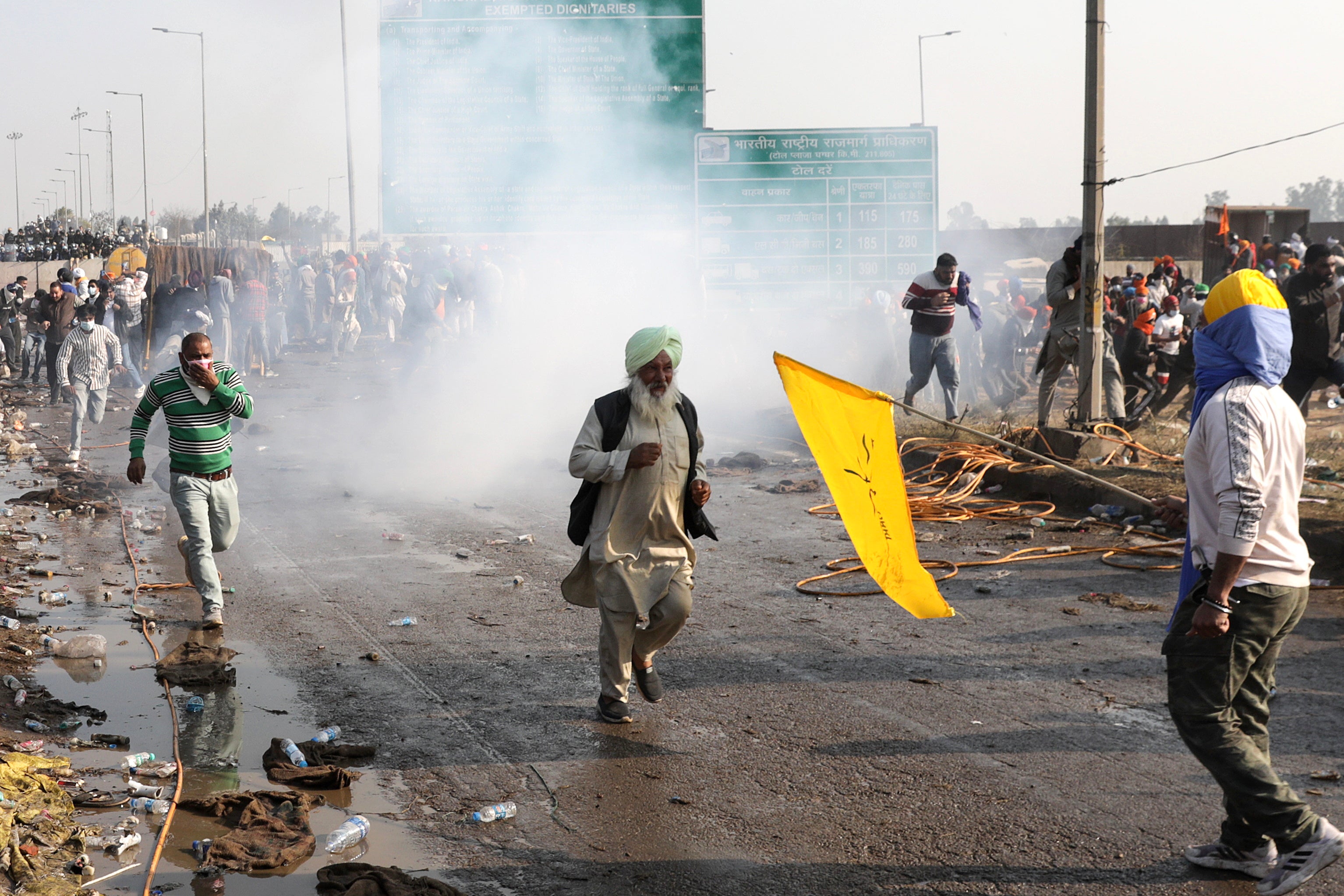Indian farmers postpone protest march as talks with government continue
Farmers demand that government set a minimum support price for produce
Indian farmers demanding higher prices for their crops will postpone a planned protest march to New Delhi until unions hold another round of talks with government ministers on Sunday.
"We have decided that the next meeting to take the discussion forward will take place on Sunday at 6pm...We believe we will all find a solution together peacefully," said agriculture minister Arjun Munda.
He met farmers’ representatives on Thursday along with commerce minister Piyush Goyal and minister of state for Home Affairs Nityanand Rai.
Protest leader Jagjit Singh Dallewal also confirmed that the farmers would hold off their march for now. "When the meetings have started, if we move forward (towards Delhi) then how will meetings happen?"
He, however, said that the protest "will continue peacefully".
Thousands of farmers had embarked on the “Delhi Chalo”, or “Let’s go to Delhi” march earlier this week to press the government to set a minimum price for their produce but they were stopped by security forces about 200km away from the capital, triggering clashes as police used tear gas and barricades to stop them.
The farmers had brought their tractors and trucks along to the protest and have used these, and other farm equipment, as deterrents to the police action: jute vegetable sacks are soaked in water and used to contain the tear gas canisters while blowers disperse the fumes.


In addition to the kites, the farmers also have sling shots and flare-guns to fire against the drones.
"Many people in this movement are veterans from the army, police or other forces, and they are suggesting ideas on how to minimise damage," said Sarvan Singh Pandher, general secretary of the Punjab Kisan Mazdoor Sangharsh Committee, one of the farm unions leading the march.
Many servicemen in India‘s Punjab and Haryana states turn to farming to make a living after they retire.
Karampal Singh, a 23-year-old protestor, said the police were "forcing" farmers to act this way. "Let them do what they want, we will find a solution," he said.

Balbir Singh, a 42-year-old farmer from Punjab who was among the protesters, said he wanted the government to know that he was struggling to make ends meet.
"We are demanding fair crop prices, there’s no fixed price so what will the farmer do? We’ll have to sell our land," he said. "Farmers are facing a financial crisis."
The protests erupted a few months before India is due to hold national elections in which prime minister Narendra Modi is seeking a third term. Farmers form an influential voting bloc.
The farmers remained camped on the border between Punjab and Haryana states on Friday. Security forces have used concrete and metal barricades, as well as drones carrying tear gas canisters, to stop them from advancing.
The protest comes two years after Modi’s government, following a similar protest movement, repealed some farm laws and promised to find ways to ensure support prices for all produce.
Additional reporting by agencies
Join our commenting forum
Join thought-provoking conversations, follow other Independent readers and see their replies
Comments
Bookmark popover
Removed from bookmarks